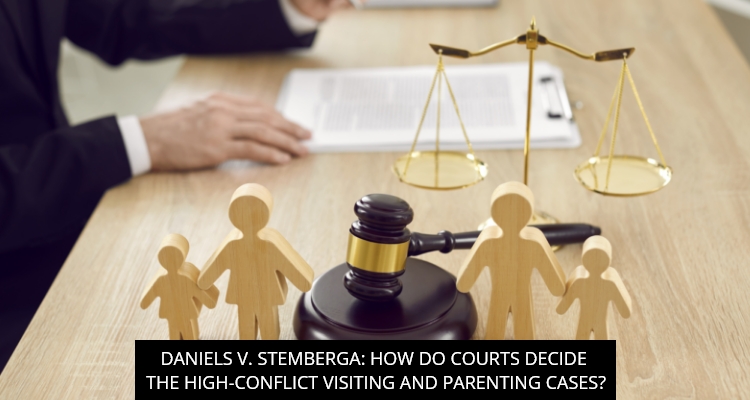
One of the foremost question that pops up in mind when considering separation is the elongated battle of achieving the decision-making responsibility and parenting of your child in the marriage.
This blog article takes into account the recent case of Daniels v. Stemberga where a high conflict has been observed by the Ontario Superior Court of Justice (ONSC) between the spouses with regard to their child.
Overview Of The Facts Of The Case
In Daniels, the parties had a son aged 12 years. The husband was solely responsible for the decision-making and parenting of their son.
The parenting visits between the child and mother ended in November 2020. Later, the mother got diagnosed with breast cancer and she filed an urgent motion for permission to meet her son before she died.
Subsequently, the father denied the mother’s urgent motion stating the deteriorated relationship between the son and mother. In 2020, a clinical report was also taken into consideration regarding the behavioural issues of the child which entailed that the child had been furiously angry towards her and preferred not to be left alone with the mother.
The mother also disclosed that the father paid no heed to visiting requests made previously by her which ultimately alludes to non-compliance with a court order under which spouses were required to encourage parenting time upon agreement.
Now, Should The Court Allow The Mother To Meet Her Son After Observing His Sheer Animosity Towards Her Mother?
If you think yes, then carry on reading this blog article….
Obviously, the courts always consider the history of the dispute in every legal proceeding. Here, the parties had shared parenting schedules initially. Due to other historical incidents between his parents (such as observing his mother losing control over her husband), the father became the sole caretaker of the son with very limited parenting visits from his mother.
Essential Factors Looked At By ONSC
It is pertinent to note that courts will debate over the issue by considering the best interests of the child in cases of visitation and parenting. Justice Somji in this instant case noted that:
- Child’s opinions and preferences
As per s. 24(3)(e) of the Children’s Reforms Act that mentions the child’s opinions and preferences, in spite of the fact that the boy had made it obvious to his counsellor by October 2022 that he really did not desire to visit his mother and did not care that she was passing, it was decided that this was not totally compelling in the circumstances.
- Development and stability of the child
In accordance with their age and developmental stage, a child’s demands, such as their need for stability, are listed in s. 24(3)(a). The child was not an emotionally developed adult at the age of twelve. Although the court recognised that one visit to his mother on her deathbed would not cure years of hurt, it could be good for the child’s protracted emotional and cognitive growth. The child would have the chance to find closure during such a visit. The child’s bond with his father must also not be harmed by the perception that his father is the one who prevented him from having one last chance to say goodbye to his mother, the court further found.
- The spouses’ willingness to support the child’s relationship with the other parent
Additionally, considering s. 24(3)(c) that talks about the parent’s willingness to facilitate the relationship with the other parent. The ONSC observed that the father was in a tough situation since he did not want to endanger his relationship with the child by enforcing visitation against the child’s desires, even though he had not previously assisted visits with the mother. Also, the father acknowledged that he would permit their son to visit out of sympathy should the mother’s death be impending.
- Any history of family violence and its effect on the child
Lastly, any familial violence and its effects on children are covered by s. 24(3)(j). The boy had once been startled angrily by his mother, who caused him to fall in the shower. The court made a distinction between parents who drive their child toward damage intentionally vs parents who are careless or irresponsible in their actions and bring injury to a child. Although the court acknowledged that the boy’s fear of his mother stemmed from more than just this one occurrence, this did not bar the requested visit because there was little chance that her son would suffer physical harm there.
Contact The Lawyers At Ayaz Mehdi Professional Corporation
For more information, please contact one of our Divorce Lawyers at Ayaz Mehdi Professional Corporation to discuss your case.
Disclaimer: Kindly note that sending or receiving information through this site does not establish a solicitor-client relationship. Legal matters are fact-specific, and the law is variably changing. The views expressed and the content provided on this blog are general guidelines and cannot substitute for proper legal advice. Schedule your legal consultation by clicking here: Let’s meet!






